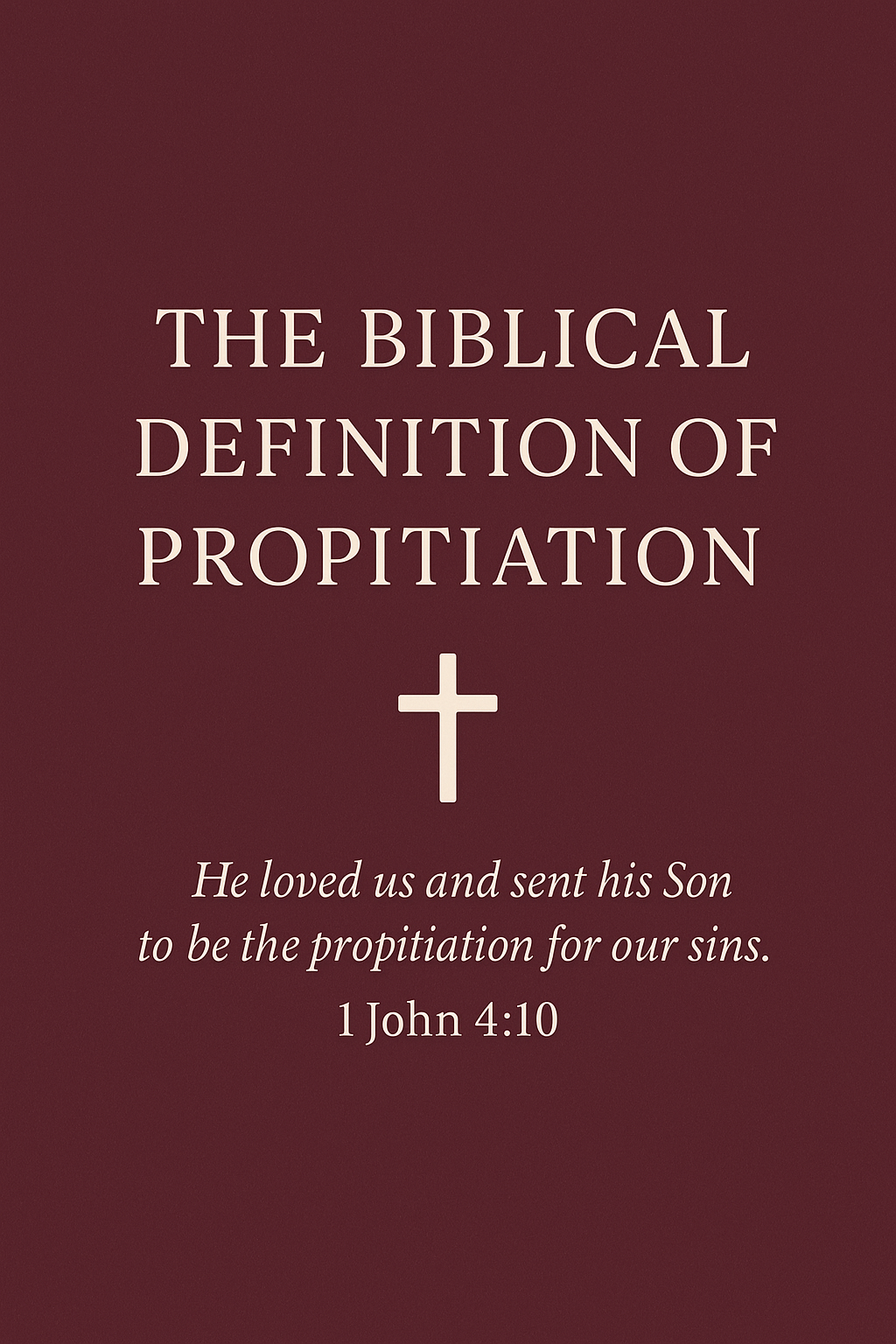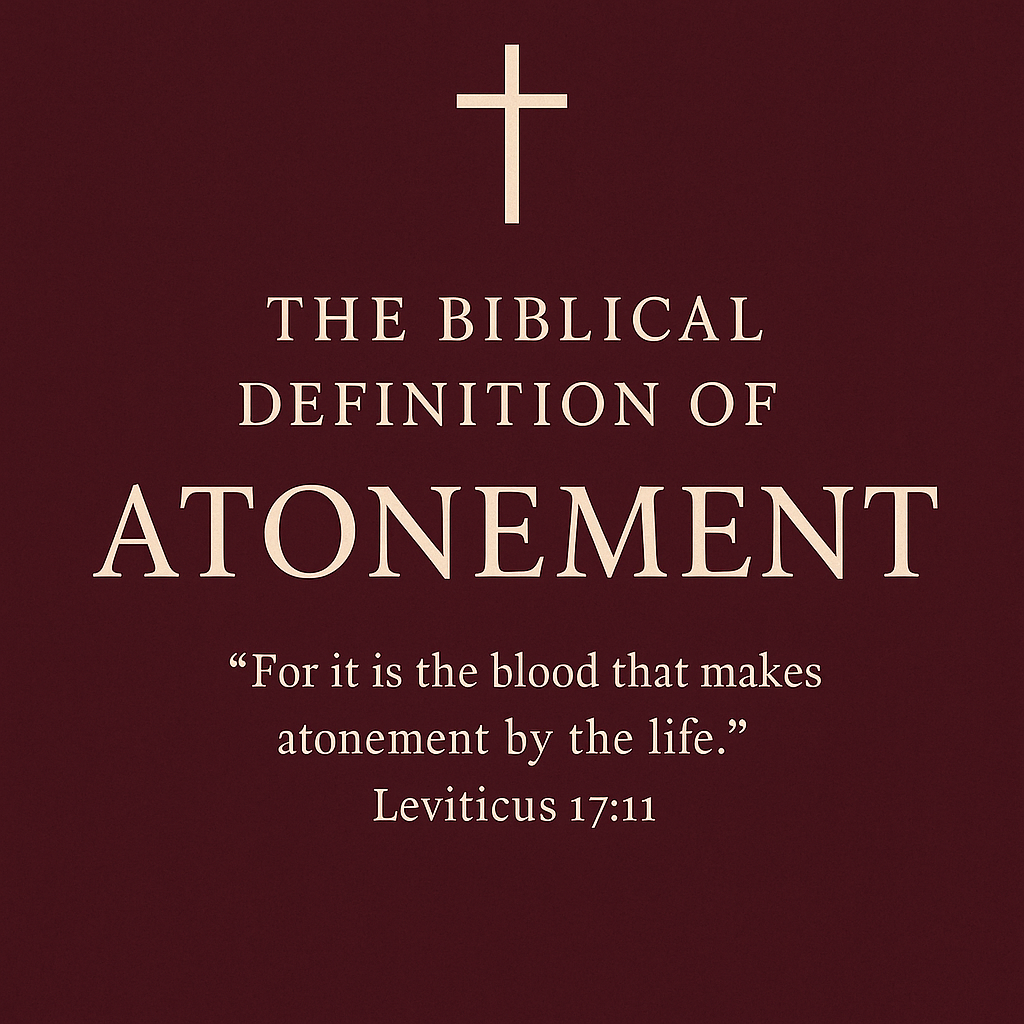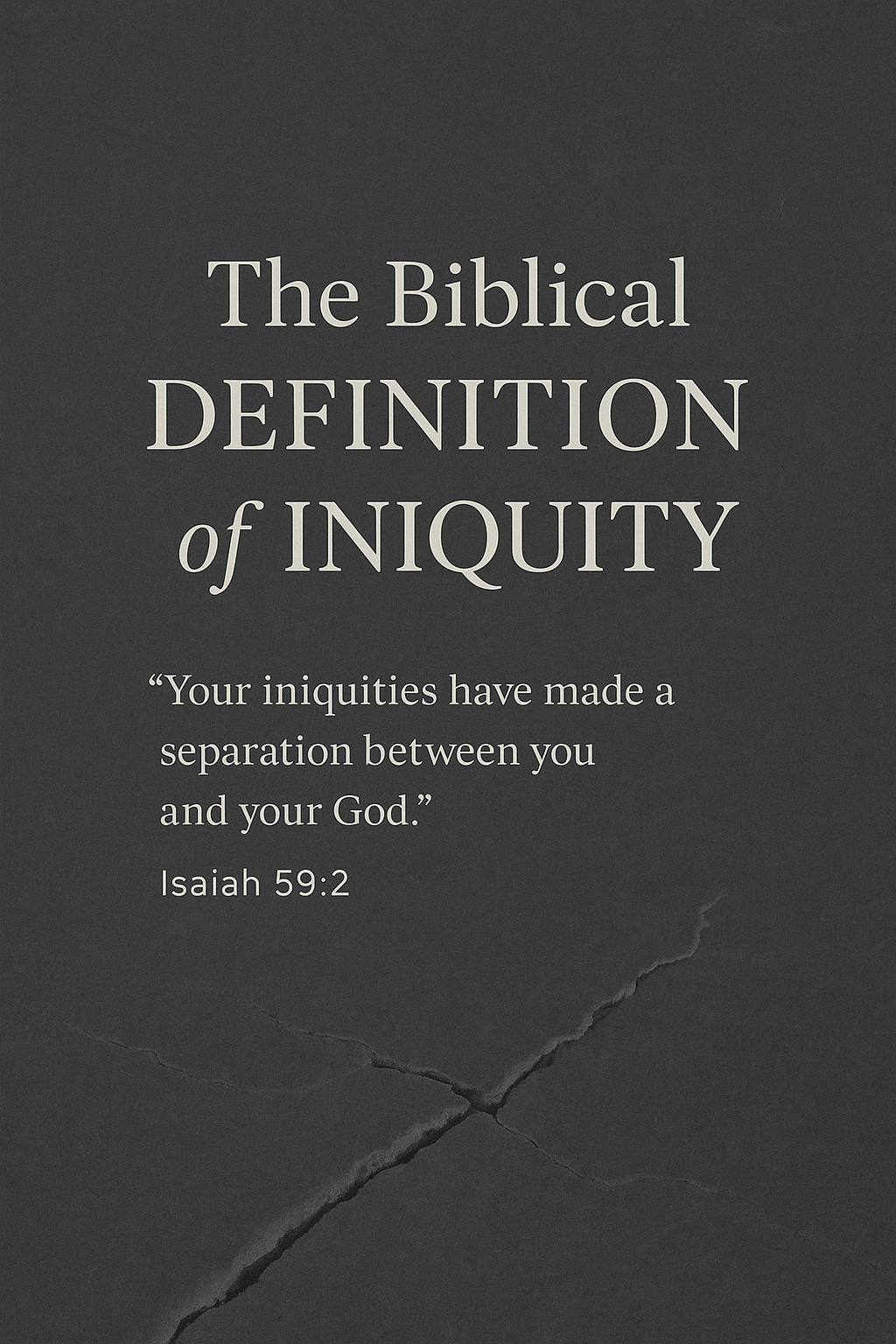Biblical Definition of Atonement: Meaning, Origins, and Significance in Scripture
The biblical definition of atonement is foundational to understanding the Christian faith, revealing how humanity is reconciled to God through sacrifice, most fully realized in the work of Jesus Christ139. The concept of atonement spans both Old and New Testaments, connecting ancient rituals with the gospel’s core message of redemption and reconciliation.
What Does “Atonement” Mean in the Bible?
The English word “atonement” comes from the phrase “at-one-ment,” signifying the restoration of harmony between God and humanity179. Biblically, atonement refers to the process by which sin is covered, cleansed, or paid for, making possible a renewed relationship with God. In the Old Testament, the Hebrew word kippur means “to cover,” “to make reconciliation,” or “to purify,” and is the root of the term Yom Kippur, the Day of Atonement59.
“Atonement is clearly the action of God and not of man throughout the Bible, but especially in Leviticus 16.”7
Old Testament Foundations: Sacrifice and Cleansing
Atonement appears over 100 times in the Old Testament, especially in the Pentateuch (Genesis–Deuteronomy), where it is closely linked to sacrifice and ritual cleansing159. The sacrificial system established by God for Israel demonstrated both the seriousness of sin and God’s provision for forgiveness.
Key Old Testament Practices
Sacrificial Offerings: Animals were sacrificed to symbolically bear the penalty of sin, their blood representing life given in exchange for the sinner’s15.
“For the life of a creature is in the blood, and I have given it to you to make atonement for yourselves on the altar; it is the blood that makes atonement for one’s life.” (Leviticus 17:11)Day of Atonement (Yom Kippur): Once a year, the high priest entered the Holy of Holies to offer sacrifices for the sins of the nation (Leviticus 16). This ritual included the selection of two goats—one sacrificed, the other sent into the wilderness as the “scapegoat,” symbolically carrying away the people’s sins19.
Cleansing and Purification: Atonement rituals also addressed ritual impurity, such as after childbirth (Leviticus 12:8), healing from leprosy (Leviticus 14:18–19), or broken vows (Numbers 6:11)1.
Theological Significance
The Old Testament system taught that sin separates people from God, but God graciously provided a way for reconciliation through substitutionary sacrifice. The process was detailed and divinely prescribed, emphasizing God’s holiness and the need for cleansing7.
New Testament Fulfillment: Jesus Christ, the Ultimate Atonement
The New Testament reveals that the Old Testament sacrifices were ultimately pointing to the atoning work of Jesus Christ. Jesus is described as the “Lamb of God, who takes away the sin of the world” (John 1:29), fulfilling the requirement for a perfect, once-for-all sacrifice69.
Key New Testament Teachings
Jesus as the Atoning Sacrifice:
“God presented Christ as a sacrifice of atonement, through the shedding of his blood—to be received by faith.” (Romans 3:25)
Jesus’ death on the cross satisfied God’s justice, absorbed divine wrath, and provided the means for forgiveness and reconciliation346.Reconciliation with God:
“All this is from God, who reconciled us to himself through Christ and gave us the ministry of reconciliation.” (2 Corinthians 5:18)
Through faith in Christ, believers are declared righteous and restored to fellowship with God469.Removal and Covering of Sin:
“He himself bore our sins in his body on the cross, so that we might die to sins and live for righteousness; by his wounds you have been healed.” (1 Peter 2:24)
The atonement “covers” sin, removing its penalty and power over those who trust in Christ.
The Nature of Christ’s Atonement
Substitution: Jesus died in the place of sinners, bearing the punishment they deserved (Isaiah 53:5–6; 2 Corinthians 5:21).
Propitiation: His sacrifice satisfied God’s righteous anger against sin (Romans 3:25; 1 John 2:2).
Redemption: Jesus’ blood “purchased” believers out of slavery to sin (Ephesians 1:7).
Reconciliation: The atonement restores the broken relationship between God and humanity (Romans 5:10–11).
“The atonement is driven by this dual commitment of God to save the people for the enjoyment of his glory and to vindicate his righteousness… Jesus is their only hope of redemption.”4
Why Is Atonement Necessary?
The Bible teaches that all have sinned and fall short of God’s glory (Romans 3:23). God’s justice demands that sin be punished, but His love provides a way for sinners to be forgiven without compromising His righteousness4. The atonement is God’s solution—He remains just while justifying those who have faith in Jesus (Romans 3:26).
The Atonement in Christian Life
Receiving the atonement means more than intellectual agreement; it is the actual reconciliation to God through faith in Christ3. It transforms the believer’s status before God and calls for a life of gratitude, holiness, and service.
Assurance of Forgiveness:
“If we walk in the light, as he is in the light, we have fellowship with one another, and the blood of Jesus, his Son, purifies us from all sin.” (1 John 1:7)Hope of Eternal Life:
The atonement secures the believer’s future resurrection and eternal fellowship with God (Romans 5:10; 1 Corinthians 15:20–22).
Atonement in Biblical Perspective: Key Verses
Leviticus 16 (The Day of Atonement)
Leviticus 17:11 (Blood makes atonement)
Isaiah 53:5–6 (The suffering servant)
Romans 3:23–26 (God’s justice and grace)
2 Corinthians 5:18–21 (Reconciliation through Christ)
Hebrews 9:22 (Without the shedding of blood there is no forgiveness)
1 John 2:2 (Jesus as the propitiation for our sins)
Summary: The Profound Mystery of Atonement
The biblical definition of atonement reveals the depth of God’s love and the seriousness of sin. From the sacrifices of ancient Israel to the cross of Christ, atonement is God’s gracious act to cover, cleanse, and reconcile. It is not merely a theological concept but the very heart of the gospel, offering hope, forgiveness, and new life to all who believe369.




















